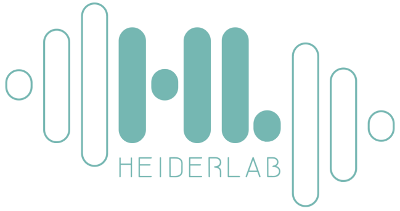CORona Drug InTEractions database
Computational investigation on Andrographis paniculata phytochemicals to evaluate their potency against SARS-CoV-2 in comparison to known antiviral compounds in drug trials
Natarajan Arul Murugan, Chitra Jeyaraj Pandian, Jeyaraman Jeyakanthan
Abstract
The outbreak due to SARS-CoV-2 (or Covid-19) is spreading alarmingly and number of deaths due to infection is aggressively increasing every day. Due to the rapid human to human transmission of Covid-19, we are in need to find a potent drug at the earliest by ruling-out the traditional time-consuming approach of drug development. This is only possible if we use reliable computational approaches for screening compounds from chemical space or by drug repurposing or by finding the phytochemicals and nutraceuticals from plants as they can be immediately used without the need for carrying out drug-trials to test safety and efficacy. A number of plant products were routinely suggested as drugs in traditional Indian and Chinese medicine. Here using molecular docking approach, and combined molecular dynamics and MM-GBSA based free energy calculations approach, we study the potency of the four selected phytochemicals namely andrographolide (AGP1), 14-deoxy 11,12-didehydro andrographolide (AGP2), neoandrographolide (AGP3) and 14-deoxy andrographolide (AGP4) from A. paniculata plant against the four key targets including three non-structural proteins (3 L main protease (3CLpro), Papain-like proteinase (PLpro) and RNA-directed RNA polymerase (RdRp)) and a structural protein (spike protein (S)) of the virus which are responsible for replication, transcription and host cell recognition. The therapeutic potential of the selected phytochemicals against Covid-19 were also evaluated in comparison with a few commercially available drugs. The binding free energy data suggest that AGP3 could be used as a cost-effective drug-analog for treating covid-19 infection in developing countries.
Source: PubMed
Related molecules
Related interactions
| Target | Drug | Type | Result |
|---|---|---|---|
| 3C-like protease | Neoandrographolide | ||
| Papain-like proteinases 1/2 | Neoandrographolide | ||
| RNA dependent RNA polymerase | Neoandrographolide | ||
| Spike glycoprotein | Neoandrographolide |
| Target | Target affiliation | Drug | Type | Result |
|---|---|---|---|---|
| Target | Target affiliation | Drug | Type | Result |
| Name | Synonyms | Genes | Origin |
|---|---|---|---|
| Name | Synonyms | Genes | Origin |
| Name | Synonyms | PubChem | DrugBank | RCSB PDB | ATC |
|---|---|---|---|---|---|
| Name | Synonyms | PubChem | DrugBank | RCSB PDB | ATC |
| Title | Authors | DOI | Source | Article type | Date |
|---|---|---|---|---|---|
| Title | Authors | DOI | Source | Article type | Date |
| Title | Status | Phases | Start Date | Prim. Comp. Date | Comp. Date | First Post. Date |
|---|---|---|---|---|---|---|
| Title | Status | Phases | Start Date | Prim. Comp. Date | Comp. Date | First Post. Date |
CORDITE (CORona Drug InTEractions database) collects and aggregates data from PubMed, MedRxiv, BioRxiv, ChemRxiv and PMC for SARS-CoV-2. Its main focus is set on drug interactions either addressing viral proteins or human proteins that could be used to treat COVID. It collects and provides up-to-date information on computational predictions, in vitro, as well as in vivo study data.
The information provided is for research only and we cannot guarantee the correctness of the data.
Please contact dominik.heider@uni-muenster.de for further information.
Programmable access
There is an open API for access programmatically to the database. The API will print a JSON output:
- Interactions
https://cordite-api.uni-muenster.de/api.php?action=list&table=interaction
- Targets
https://cordite-api.uni-muenster.de/api.php?action=list&table=target
- Drugs
https://cordite-api.uni-muenster.de/api.php?action=list&table=drug
- Publications
https://cordite-api.uni-muenster.de/api.php?action=list&table=publication
- Clinical trials
https://cordite-api.uni-muenster.de/api.php?action=list&table=clinical_trial

